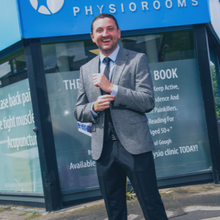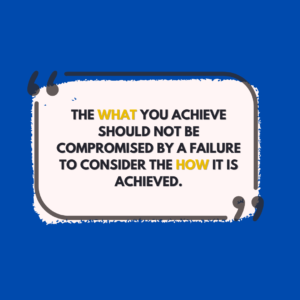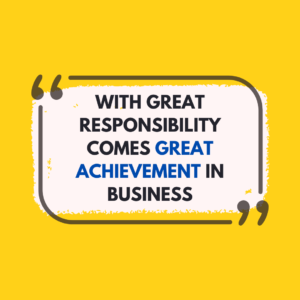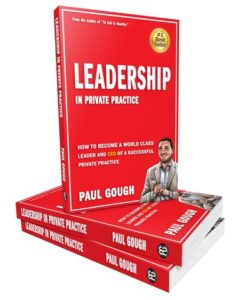 Imagine the scenario.
Imagine the scenario.
You spend your whole life working towards something – a certain level of achievement – only to discover that you won a gold medal in the wrong race. Sounds dumb, right? And in the cold light of day, it is.
But it is life in the entrepreneurial world and it’s so common that it would be remiss of me not to bring it to your attention from time to time.
The WHAT you achieve should not be compromised by a failure to consider the HOW it is achieved.
The result of copying the wrong model of achievement means that there are a lot of so-called winners who spend their whole life unable to work out why, despite their gold medal, they’re still miserable and feel as if they’re constantly lacking in something, who are always hoping that the next thing they set out to achieve will fix that.
Let’s see if we can start to change that through this article today.
As I think about success – and what it means to achieve in life and business – I think it’s important to consider not just the end goal, but also the means. In fact, I think it’s vital.
The ‘juice’ is one thing – but what about the ‘squeeze’ it takes to produce? There are multiple paths and ways to achieve big things and yet it seems the one most take is the hardest.
Of course, I’m not suggesting that you look for the easy path – just the one marked smartest. The path that allows you to get what you want without there being a constant self-sacrifice and allowing your only priority to be the total volume of hours you’re allocating in the week ahead.
 I see so many business owners who have a ‘win at all costs’ mentality and although admirable – and perfect for social media boasting or conversations with friends and family – I really don’t think it’s needed.
I see so many business owners who have a ‘win at all costs’ mentality and although admirable – and perfect for social media boasting or conversations with friends and family – I really don’t think it’s needed.
Even if you’re trying to prove something to someone – and that is fuelling your drive – the reality is the person you’re trying to prove wrong doesn’t care. They’re living at a completely different level of life to you. A much lower one.
Here’s a tip: If you like being unhappy – go ahead and spend ten years trying to prove something to someone who even if / when you prove it will still find a way to undermine what you achieved.
As the saying goes “If you lay down with dogs you will get bitten by fleas.”
Your New Reflex Should Be…
I believe that for every person you speak to who achieved having done it the “18 hours per day” way – there are just as many (if not more!) who did it with an 8-hour day, or less.
What’s important is that you have the discernment to be able to look at any given situation and ask what is required of you in that moment or that specific situation – and flex into or out of it.
Go in hard and fast if you have to do the long hours – put in the shift – but first ask yourself if there could be a better way you haven’t considered. The new reflex you need is one of at least CONSIDERING that there could be a new way.
Just say “maybe” or “what if there was another way – what would it be?” But you must avoid being rigid and fixed at all costs.
What is more, if you’re going to be proud and boast about doing the 18-hour days – I think you should be equally as proud (if not more!) about the latest “2-hour day” you put in having still achieved what you wanted.
Can you imagine the conversation you would have with a fellow business owner (or patient who now questions, where you are since you, stopped treating) when you tell him that you’ve been working hard for a few months on figuring out how to do as little as possible and that you’ve finally cracked it!
That you’re now putting in the ‘all morning’ shift as he is about to set off to do the ‘all day and all night’ shift – for less return than you. I guarantee there will be a stunned silence followed by a justification of why that person’s long hours are REALLY needed.
The Most Vocal Are Often the Most Fearful…
So why do people copy the wrong model of success?
Easy: it’s the people who aren’t sure about their choices in life that are the most vocal. They always have the most influence and it’s so easy to be seduced by them. It is fear in disguise.
Seriously, it’s the people who haven’t figured this type of stuff out who seem to be a lot more passionate about what they’re doing than the ones who have. It’s as if the ones who have figured it out can’t be bothered to talk about it.
After all, if what you’re doing is so right, why do you need the approval of anyone else to tell you it is? [I recommend you read and re-read that last sentence many, many times…]
That temptation to work HARDER (not smarter) is often intensified by looking at other people who are successful and copying what they do. If you’re short on inspiration, it’s easy to look at others and commit to copying what they do.
An obvious scenario would be to copy world-class athletes or professional sports people and look at what they did to get the awards and medals they won in their careers.
I can see how easy it is to look at someone like Usain Bolt, Michael Jordan, or Simone Biles and think that if you want to achieve like them, then you need to act and behave like them.
And to a degree, it is true. We do have to display SOME of the traits that these types of athletes have – but not all of them.
As I said earlier, the trick is having a level of discernment – of critical thinking (something I obsess over in the CEO Mastermind Program) – that allows you to recognize that although what the athletes do is admirable (sacrifice, etc) it may not be what we need to do for us to achieve our version of the gold medal at the Olympics.
One of the obvious distinctions is that the biggest asset and the most amount of leverage that an athlete has is found in their physical body.
Undeniably, Simone Biles has to work hard physically to get every ounce of flexibility, coordination, strength, and balance from her body. She has to be strong mentally, but she doesn’t get to the Olympics if her body can’t perform to meet the standards required.
Michael Phelps had to get every ounce of power, reach and grace from his body to allow him to glide effortlessly through the water faster than anyone else. However, what they have to get the most out of is very different from what we entrepreneurs must.
As entrepreneurs we are not looking to leverage our physical bodies – although I do admit it is much easier to run a business if you’re fit and healthy than not – instead, we’re looking to get the most from our ability to think.
From that, we’re looking to leverage the skills and assets of other people (hiring).
The amount that we’re able to achieve is often directly proportional to our ability to think strategically and hire the right people within the right company structure that makes the productivity more likely.
Doing that is how we can achieve a multiple of 100X if we get it right and without the constant long hours being needed that so many like to boast about.
While Michael or Usain are working hard to develop their physical attributes – you and I have to work hard on our mental attributes and our ability to get more from other people.
Leverage.
 I’ve heard it said that working 16 hours per day for ten years is actually quite ‘lazy’ – and I think I agree.
I’ve heard it said that working 16 hours per day for ten years is actually quite ‘lazy’ – and I think I agree.
It suggests that a form of mental laziness has taken over that has kept the business owner stuck on a treadmill of never being able to figure out how to get to the end goal another way.
Don’t take that the wrong way if you’re currently doing it, I’m just trying to offer another way of thinking about how to get to the place you want to be faster.
And don’t get me wrong… I am not suggesting for one second that there isn’t a time and a place for 16-18 hour days or the occasional 80-hour week. There absolutely is.
The point I am raising is that if you’re doing it every week and you’re still doing it years after starting your business, you’re definitely doing something seriously wrong.
I think the “thing” most are doing wrong is in failing to understand that as a business owner aspiring for a higher level of autonomy and freedom in your life, the way it is achieved is by being able to think critically and leverage the ultimate asset: other people.
That is why I say it pays to get good – preferably world-class – at recruitment and performance managing other people. Ten good people can do so much more than you ever can on your own.
That is what the purpose of this article is.
It’s yet another reminder that if you want to run a real business, and simultaneously find more time while achieving more, you’ll only do it when you embrace the need to be responsible for more people in your life. (Check out my podcast: How to Balance the Never-Ending Guilt of Work vs Leisure)
I think it was Superman who said “With great powers comes great responsibility”. Well, Paul Gough has adapted it for business owners: “With great responsibility comes great achievement in business.”
Your people are definitely in the “responsible for” column. If you get enough of the right ones, it is undeniable that you will achieve more while personally doing less.
Transform Yourself from a Physical Therapist into a CEO of a Successful Physical Therapy Practice
 Check out Paul’s IMPACTFUL book Leadership in Private Practice.
Check out Paul’s IMPACTFUL book Leadership in Private Practice.
Discover how your Private Practice could be more profitable if you weren’t treating patients, all day, every day!
This is a MUST READ for any Private Practice Owner who wants to remove themselves from the day-to-day running of their business and build a team of players who can run their business without having to be in the office every day.
Take your first step to becoming a great leader and CEO of your business:
